There is a bit of a hill climb (341 steps), our tour bus dropped us near the entrance. The castle ruins of Heidelberg sit at a great vantage point, about 80 meters up the northern part of Konigstuhl hillside overlooking the old town area. The Heidelberg castle has a long history with records dating back to 1214, many expansions,lightning strikes,wars,fires and rebuilds since then.
The Gate Tower
The Gate Tower is the main entrance to the castle, still an impressive structure. Above the entrance arch is the remains of the coat of arms – two gate keepers and two lions (a missing eagle). There is an interesting view of the ruins from the Elizabeth Gate and piece garden. The Elizabeth Gate leads into the Artillery Garden.
The Elizabeth Gate – a romantic tale
In the year 1612 in London, Frederick V, Elector Palatine married Elizabeth Stuart, the daughter of King James 1st. of England. The marriage, politically orientated to unify the protestant lines of England and the Palatinate, the Dutch house of Orange-Nassau and Denmark. Frederick and Elizabeth were both only 16 years of age, and from all accounts fell in love and remained so throughout their marriage. The wedding was a very expensive affair, celebrations went on for two months after the wedding. Frederick,very enamoured with his bride, commissioned the Elizabeth Gate to be built for her homecoming to Heidelberg.
Ruprecht’s building – Heidelberg Castle
In inner courtyard area is the remains of the oldest residential building in Heidelberg castle, built around the year 1400. This is known as the Ruprecht’s building named after Ruprecht III who became emperor of Germany in 1401. There is a stone relief of a single eagle on the outside wall, the ensign of the Roman Kings and emperor-to-be. Ruprecht III and his wife Elizabeth lie entombed in the Church of the Holy Spirit in Heidelberg.
Frederick’s building above, commissioned by King Frederick IV and constructed between 1601-1607 display a pure renaissance style. The facade is richly decorated with ancestral portraits in stone. Next to it stands the ruins of the Glass Hall building (1549-1555) built during the reign of Archduke Friedrich II. The courtyard buildings added and joined on to one another with little thought to overall appearances, however guess they stand as examples of the different periods of architecture through-out the centuries.
Ottheinrich building – Heidelberg castle
Above – the facade of the Ottheinrich building, constructed during 1556-1560 under the rule of Elector Ottheinrich (1502-1559) marked the start of the German renaissance style at Heidelberg Castle. The facade is elegant and adorned with magnificent sculptures and decorative elements. The Imperial Hall and Knights’ Hall maintained to display their original beauty and craftsmanship, are now mainly used for exhibitions and events.
Heidelberg Castle – Garden ruins
In their day the Heidelberg castle gardens were a magnificent achievement in landscaping and horticultural design, particularly taking into account the difficulties of the steep mountain terrain. Known as Hortus Palatinus (Garden of the Palatinate), commissioned in 1614 by Frederick V, Elector Palatine for his new wife Elizabeth Stuart. A Baroque garden in Italian Renaissance style considered by contemporaries across Europe as the “Eighth Wonder of the World” at that time. Following the start of the 30 year war Heidelberg castle and the magnificent gardens became severely damaged and neglected over the years, eventually falling into ruins.
Views from Garden Terrace
One can still appreciate the wonderful view from the garden terrace across the hillside ruins, to the red roof tops of the city, the weir, and the classical stone arched bridge over the river Neckar.
Great Barrel of Heidelberg castle
Below ground, down a winding staircase brings us to the famous Great Barrel of Heidelberg Castle. The Heidelberg Tun, constructed from 130 oak trees (legend has it),has a holding capacity of 221,726 litres. The best view of the barrel is from the dance floor balcony built over the barrel. Plenty of wine tasting to be had.
Keeper of the Heidelberg Tun
Elector Palatine Charles III Philip appointed his court jester, known as the dwarf Perkeo as keeper of the Tun and master of the castles wine production. A wooden figure of Perkeo stands nearby to keeps an eye on the Great Barrel. Perkeo has since become an unofficial mascot of Heidelberg.
We enjoyed the wine tasting ever so much. So glad we had a bus to pick us up, otherwise we may have just rolled down the hill. Once again we are skipping out on the 341 steps, our bus is picking us up near the castle gate. I understand there is very little parking for vehicles on the hill; it is simpler to get a local bus or the funicular from Heidelburg old town to the castle ruins.
Down to Heidelberg city now to have a walk through the old town and see what it has to offer. Another look at the castle from a different viewpoint….
Related Posts:
- freiburg-minster-romantic-road-germany
- Konstanz on Lake Constance-romantic road Germany
- Beautiful Lindau the island on lake constance
- sightseeing Munich Bavarian capital romantic road germany
- Romantic Road – Nymphenburg Palace – Munich
- Ettal Abbey and Pilgrimage Church
- Garmisch-partenkirchen ski resort – Oberammergau village
- Extravaganza – Schloss Linderhof | King Ludwig
- Hohenschwangau Neuschwanstein Schwangau
- Beautiful Schloss Neuschwanstein
- Abbey of St Mang’s Fussen Bavarian Alps
- Beautiful rococo Wieskirche beautiful Bavarian alps
- Augsburg Fuggerei village settlement
- Dinkelsbuhl medieval fortifications-medieval city wall
- Rothenburg – a beautiful medieval town
- Romantic Road attractions Germany
- Romantic Road Frankfurt Germany
- Bavaria Germany Wurzburg – along the Romantic Road
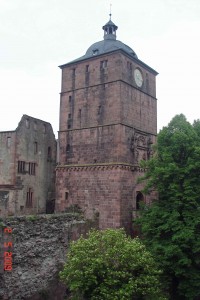
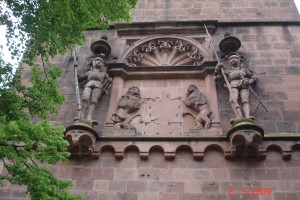
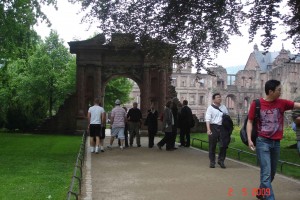
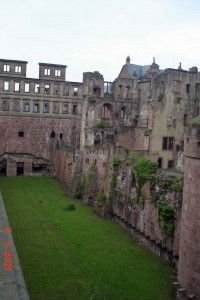
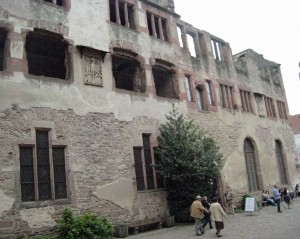
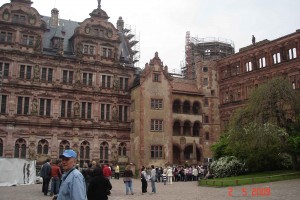
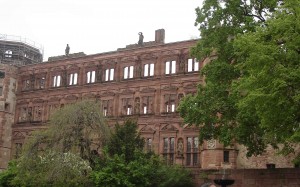
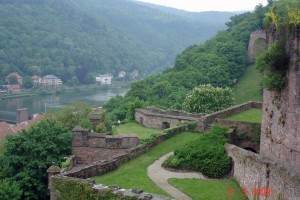
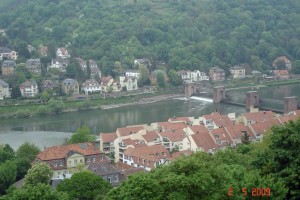
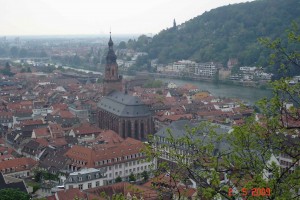
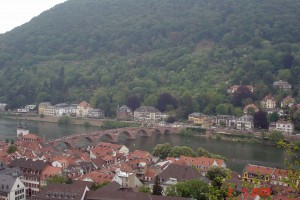
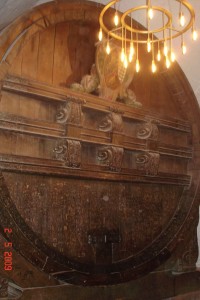
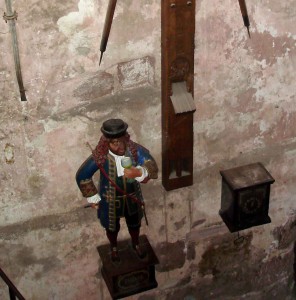
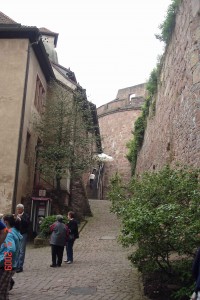
Speak Your Mind